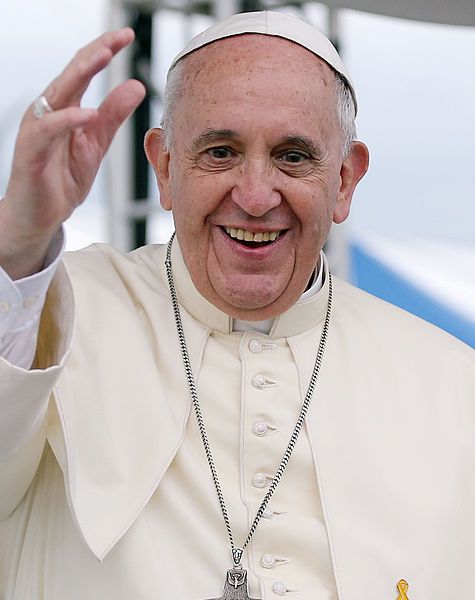Pope Francis, the first pope from the Americas and the first Jesuit to ascend to the papacy, has been a beacon of change since his election in 2013. His leadership style, marked by humility and a focus on social justice, has set him apart from his predecessors. Known for his simple lifestyle and emphasis on mercy over judgment, Pope Francis has captured the hearts of many across the globe, transcending religious boundaries.
Embracing liberal values, Pope Francis has challenged traditional Catholic doctrines and practices, advocating for a more inclusive and compassionate Church. His progressive stance on issues such as climate change, poverty, and immigration has resonated with those who seek a more socially conscious approach to faith. This article explores how Pope Francis's liberal perspectives are reshaping global Catholicism, influencing both the Church's internal dynamics and its role in international affairs.
The Evolution of Modern Christianity
Carl Trueman's critique of Pope Francis labels him as nothing more than a liberal Protestant, referring to a Christianity that maintains a commitment to the supernatural while embracing modernist ideals. Trueman argues that this form of Christianity dilutes traditional beliefs, focusing more on contemporary societal issues rather than doctrinal purity. However, this characterization oversimplifies the complexity of Pope Francis's theology, which seeks to balance tradition with modernity.
Pope Francis's approach emphasizes the importance of dialogue and understanding within the Church. By engaging with diverse perspectives, he encourages Catholics to reflect on their faith in light of current challenges. This openness to change reflects a broader trend in modern Christianity, where adapting to societal shifts is seen as essential for relevance and growth.
Despite criticisms, Pope Francis's willingness to address controversial topics head-on demonstrates his commitment to fostering a dynamic and evolving Church. His leadership invites believers to reconsider outdated dogmas and embrace a faith that aligns with contemporary values, thus ensuring the Church remains a vital force in today's world.
A Leader of Change
Pope Francis's disruptive influence within the Catholic Church often favors liberal causes, challenging established norms and power structures. His focus on disruption stems from a desire to revitalize the Church, emphasizing the need for reform and renewal. Rather than adhering strictly to ideological lines, Pope Francis prioritizes action and results, using his authority to instigate meaningful change.
By concentrating on power dynamics rather than rigid ideologies, Pope Francis aims to create a more equitable and just Church. His initiatives target systemic inequalities, advocating for marginalized communities and promoting inclusivity. This approach underscores his belief that the Church must serve as a moral compass, guiding society toward greater compassion and solidarity.
Pope Francis's leadership exemplifies the transformative potential of religious institutions when they adapt to meet the needs of their followers. Through strategic disruptions, he encourages the Church to evolve, ensuring it remains relevant and impactful in an ever-changing world.
Compassion Over Dogma
Pope Francis believes that Catholics are called to love and serve others through acts of generosity and kindness, rather than enforcing strict adherence to doctrine. This perspective highlights his emphasis on compassion and empathy, encouraging believers to act as living witnesses to non-Catholics. By prioritizing love and service, Pope Francis fosters a sense of unity and shared purpose among all people.
His teachings stress the importance of reaching out to those outside the Church, promoting dialogue and understanding between different faiths and cultures. This inclusive approach reflects Pope Francis's vision of a global community united by shared values and mutual respect. By focusing on commonalities rather than differences, he seeks to bridge divides and foster harmony.
Pope Francis's liberal stance on various social issues aligns with his broader mission to create a more compassionate and interconnected world. Through his words and actions, he inspires others to embrace a faith rooted in love, justice, and equality, ultimately contributing to a more peaceful and harmonious society.
A Progressive Vision for the Future
Pope Francis's progressive outlook positions him as one of the most liberal popes in the history of the Catholic Church. His advocacy for progressive causes, such as environmental protection and economic justice, has endeared him to the liberal left. However, his support for these initiatives also raises concerns about potential conflicts with long-standing Catholic teachings and traditions.
By championing the causes of the global Left, Pope Francis challenges the Church to reconsider its role in addressing pressing social issues. His efforts to modernize certain aspects of Catholic practice reflect a willingness to adapt to changing times, ensuring the Church remains a powerful advocate for positive change. This forward-thinking approach resonates with many who view religion as a catalyst for social progress.
Pope Francis's leadership embodies the complexities of balancing tradition with innovation, offering a hopeful vision for the future of Catholicism. As he continues to navigate the delicate balance between preserving core beliefs and embracing new ideas, his impact on the Church and the world will undoubtedly shape the course of history for generations to come.
Navigating Challenges Ahead
Pope Francis's liberal revolution faces significant challenges, particularly in regions historically associated with the Protestant Reformation. These areas, characterized by strong cultural and religious identities, present unique obstacles to his reform efforts. Despite these difficulties, Pope Francis remains committed to advancing his vision of a more inclusive and compassionate Church.
As he navigates these challenges, Pope Francis must address concerns from both conservative and liberal factions within the Church. Balancing competing interests requires careful diplomacy and strategic planning, ensuring that reforms do not alienate key stakeholders or undermine institutional stability. His ability to maintain unity amidst diversity will be crucial in determining the success of his initiatives.
Pope Francis's journey represents a pivotal moment in the history of the Catholic Church, highlighting the ongoing struggle to reconcile ancient traditions with modern realities. By remaining steadfast in his convictions and adaptable in his methods, he offers hope for a brighter future, where faith serves as a unifying force for good in an increasingly divided world.

